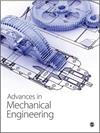Impact of hydrogen direct injection on engine combustion and emissions in a GDI engine
IF 2
4区 工程技术
Q3 ENGINEERING, MECHANICAL
引用次数: 0
Abstract
The combustion and emission characteristics of a hydrogen engine were investigated through experimental analysis using a GDI engine. To enable hydrogen in-cylinder direct injection, a specialized hydrogen gas injector was employed. A comparative analysis of the combustion performance between gasoline and hydrogen fuels in a spark-ignited engine was conducted. Additionally, the study experimentally explored the thermal efficiency and emission reduction potential of hydrogen engines in lean combustion modes. The results indicated a significant improvement in the combustion rate when hydrogen fuel was utilized in the spark-ignited engine. However, the effective thermal efficiency was found to be lower than that of gasoline fuel due to the delayed MBF50 under stoichiometric conditions. Furthermore, when compared to gasoline fuel, the reduction of CO and THC emissions was accompanied by an increase in NOx emissions. Nevertheless, optimizing the air dilution ratio in hydrogen engines led to an improvement in the effective thermal efficiency. Specifically, under medium load conditions, a Lambda value of 2.7 resulted in an effective thermal efficiency of 43.5%. Additionally, under ultra-lean conditions (Lambda > 2.3), NOx emissions could be reduced to below 50 ppm, reaching as low as 44 ppm. This study highlights the potential of improving combustion efficiency and reducing emissions by utilizing hydrogen fuel, particularly in lean combustion modes. It contributes to the continuous development of hydrogen engine technology and promotes the implementation of cleaner and more efficient energy solutions.直喷氢气对发动机燃烧和排放的影响
采用气直喷发动机对氢发动机的燃烧和排放特性进行了实验分析。为了实现氢气缸内直喷,采用了专门的氢气喷射器。对汽油和氢燃料在火花点火发动机上的燃烧性能进行了对比分析。此外,本研究还通过实验探索了氢发动机在稀薄燃烧模式下的热效率和减排潜力。结果表明,在火花点火发动机中使用氢燃料可以显著提高燃烧速度。然而,在化学计量条件下,由于MBF50的延迟,其有效热效率低于汽油燃料。此外,与汽油燃料相比,CO和THC排放的减少伴随着NOx排放的增加。然而,优化氢发动机的空气稀释比可以提高有效热效率。具体而言,在中等负荷条件下,Lambda值为2.7时,有效热效率为43.5%。此外,在超精益条件下(Lambda >2.3), NOx排放量可降至50ppm以下,低至44ppm。这项研究强调了利用氢燃料提高燃烧效率和减少排放的潜力,特别是在稀薄燃烧模式下。它有助于氢发动机技术的持续发展,并促进实施更清洁、更高效的能源解决方案。
本文章由计算机程序翻译,如有差异,请以英文原文为准。
求助全文
约1分钟内获得全文
求助全文
来源期刊

Advances in Mechanical Engineering
工程技术-机械工程
CiteScore
3.60
自引率
4.80%
发文量
353
审稿时长
6-12 weeks
期刊介绍:
Advances in Mechanical Engineering (AIME) is a JCR Ranked, peer-reviewed, open access journal which publishes a wide range of original research and review articles. The journal Editorial Board welcomes manuscripts in both fundamental and applied research areas, and encourages submissions which contribute novel and innovative insights to the field of mechanical engineering
 求助内容:
求助内容: 应助结果提醒方式:
应助结果提醒方式:


